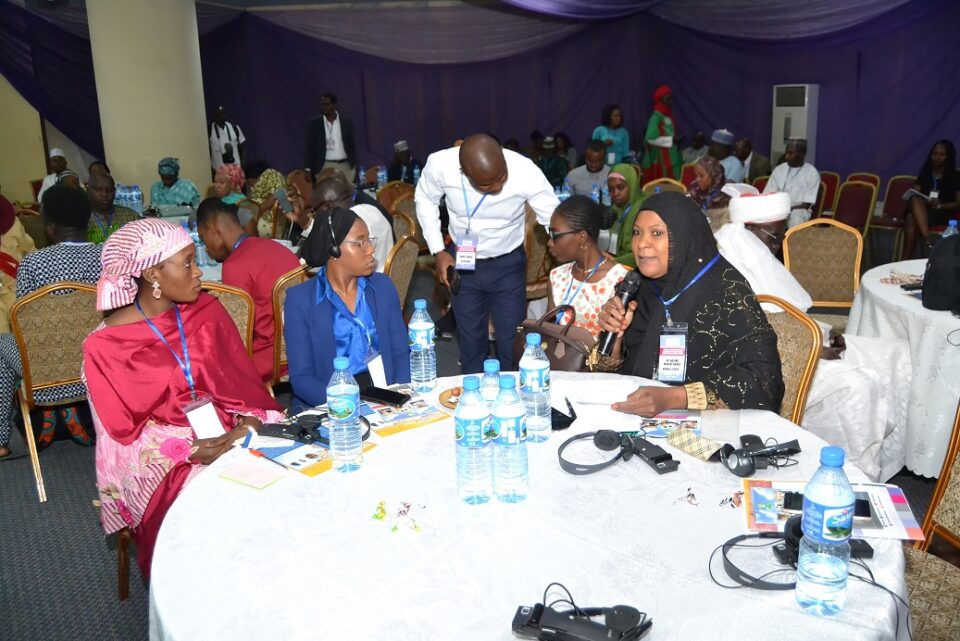By Hassan Zaggi
Traditional and religious leaders in Nigeria have been advised to use their influence to ensure that girls go to school in their localities.
The Lead Advocate for Keeping Girls In School (KGIS), a Non Governmental Organisation (NGO), in Africa, Dr. Mairo Mandara, gave the advice at a two-day dissemination meeting in Abuja, Monday.
KGIS has the following objectives- developing strategies and solutions to ensure African girls finish secondary school; supporting mentorship programs for girls in Africa; leap frogging improvement in maternal and child health and reframing the role of women in their communities.
Dr. Mandara further called on the government to make completion of secondary school as a minimum compulsory for every person.
She also advocated for a central role for traditional and religious leaders in the country so that they can monitor schools and ensure that every child goes to school and every teacher goes to school and that they are teaching.
“We need to ensure that religious and traditional rulers are given a central role in monitoring schools in ensuring every child goes to school and every teacher goes to school and that they are teaching. The government need to give them that role and ensure that it happens.
“The second thing is that we need to use the power of religion- orthodox church, Islam, Catholic and the rest and use the power the religion has given to women as human beings to ensure that girls go to school.
“This is because the data we have showed that when girls complete secondary school, it reduces maternal mortality, child mortality and increase family well-being and family health and also increase family income generation. Completion of secondary school is the only time when women begin to change concept into action.
“What we are asking is that we should make completion of secondary school as a minimum compulsory for every person.
“Because every child, every human being and indeed, all lives have equal value, the girl child should be given the opportunity to reach her potential,” she said.
Speaking earlier, the Chief Education of the United Nation Children Fund (UNICEF), Saadhna Panday-Soobrayan, said that girls’ access to quality education needs sustained, comprehensive, multi-sectoral and multi-stakeholder initiatives that are delivered with speed, scale, and quality.
She disclosed that even though Nigeria has advanced in closing the gender gap in education, “but significant regional disparities remain in enrolment, retention and transition rates for girls.
“One in two girls do not transition to junior secondary school and in rural areas, for every 25 boys who complete junior secondary school, only 9 girls do so.
“This is fueled by a complex interplay of factors including high rates of poverty, safety and security concerns, gender biases and social norms and traditions. “
While calling for more investments in the girl-child, UNICEF Education Chief said: “There is a rich store of data on the benefits accruing to girls, women and to societies when investments are made in girls’ education, in particular secondary education.
“It dramatically increases the lifetime earnings of girls; child marriage rates decline, child mortality rates decline; and child stunting drops.”
Responding to questions from journalists, the Shehu of Bama, Umar Kyari El-Kanami, said that even though the Boko Haram war is not completely over, but that there is relative calmness in the area compared to the previous years.
On how they are getting the girls to enroll in school in the area, he said, “we try to encourage our people to enroll our children in school. If you go to the rural areas, most of our people don’t want to take their wives to hospitals because when they go there, a male doctor will attain to them. In that line we encourage them to send their girls to school so that in the near future, their women will be attended by a female doctor.
“We try to encourage the community to love one another, forget the past and let us move forward together.”
On his part, the Emir of Anka, Atahiru Mohammad, explained that the secret of their success in getting huge number of girls enroll in school was advocacy and enlightenment.
According to him: “We started with advocacy and enlightenment. We involved the traditional rulers and other religious leaders. We now have a lot of girls in our schools.
“The security aspect is overwhelming. The schools that are in the local government areas we can guarantee them, but those in the rural areas, we cannot because there is no security in those areas.”
In the area of funding to ensure children stay in school despite lean government resources, he said: “During our advocacy and sensitization, we made it clear to parents that the government cannot shoulder everything. Most of the parents are doing well because they are sponsoring the girls by providing them with all that they require for their education.
“We have a foundation where we launched an appeal fund and got some money and we use this to help those who do not have the money to pay. We are trying as much as we can.”



